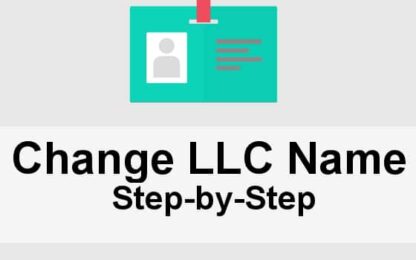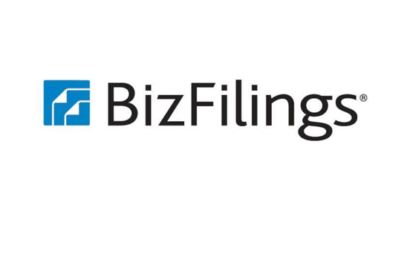Foreign Limited Liability Company (FLLC): Meaning and Specifics
Suppose you have an existing LLC and want to operate a business under the same name in a different state. For example, your ABC Carpets business may exist in New York, and you may want to conduct the same business in California. Legally, you cannot set up shop in California without the state's consent. Instead, you must qualify your existing ABC Carpets as a foreign limited liability company in California.
What Is a Foreign Limited Liability Company?
Setting up a foreign LLC essentially means that you are traversing state lines, i.e., conducting the same business in another state other than that which you have established the business. Without qualifying your business as a foreign LLC, you would be operating in violation of the law. And not only would that pierce your corporate veil and undermine the protection of your personal assets but it can also land you in trouble with the law.
Incurring fines and other penalties is common with businesses that do not follow the prescribed routes. This guide will focus on who should form a foreign LLC, why it is crucial, and how to go about it.
What is the Difference Between Domestic and Foreign LLCs?
What comes to mind when you think of a foreign limited liability company? Sometimes, people think this relates to a company formed outside the U.S. While that also holds, it refers to a company formed in one state but wants to do business in another state. We use our example of the ABC Carpeting business in New York, which wants to extend its services to California.
Thus, in this case, the domestic LLC vs. foreign LLC debate would be easy to clarify. The ABC Carpet business in New York would be a domestic company, while the foreign one would be that in California. Essentially, both setups operate in the U.S.; thus, none is a foreign company. However, since the company was first established in New York, which serves as its home base, it qualifies as a domestic company in the state. It is foreign in California because that’s a different state.
Another key cause of confusion regarding domestic vs. foreign LLCs is whether this has anything to do with the owners. The answer is no. When you qualify as an FLLC, that does not mean that foreigners own the company. It only means that you operate outside the jurisdiction where you originally formed the business. However, authorities sometimes refer to businesses owned by foreigners as FLLCs.
A domestic LLC is one that was created in one state and continues to conduct business in that state. For example, ABC Carpet, formed in New York, qualifies as a domestic company. And it must thus confine its activities to that state. If you were to open the same business in another state without qualifying it as an FLLC, you would violate the applicable state laws.
Do You Need to Form a Foreign Limited Liability Company?
State requirements for qualifying foreign businesses vary. As such, you must always check what applies to your type of business based on the state you would like to qualify in. Usually, you have the right to register an FLLC if you meet any of the following criteria:
- You operate a business bank account in the state in which you would like to expand your business;
- You own commercial property in another state. Examples include business storefronts, warehouses, offices, and other premises, which fall under these qualifications;
- You own any other kind of property in the other state which you use regarding your business pursuits;
- You represent a distributor or a manufacturer in the other state;
- You often transact or conduct meetings in the other state;
- You hire employees in the other state;
- You accept orders from clients in the other state;
- Your business has some form of physical presence in the other state.
If any of these requirements apply to your business, the other state will consider your activities as conducting business in the state. And without the proper paper trail to justify your activities, you can get into a lot of trouble. That’s why you should consult experts in the other state, figure out if you need to register an FLLC, and abide by their recommendations.
What are the Benefits of Foreign LLC Registration?
Often, entrepreneurs already operating a business in one state wonder what a foreign LLC is and why they should form one. The truth is that many benefits accrue from such undertakings.
You garner a good reputation in the other state
Let’s assume that you own ABC Carpets in New York and want to provide similar carpeting services to people in California. It would be easier for you if you set up a shop in California because residents in the state would find it easy to accept your invoices and transact with you financially.
Moreover, such transactions would be subject to less scrutiny, which would hasten your business transactions and help you expand faster. You would also have an easier time paying taxes because you would pay what applied to California in California to cater to your business in the state. And you could separate this from what you paid in the Big Apple.
You can enjoy some tax benefits
Sometimes, people asking what is a foreign limited liability company have concerns as to how much money they need to pay to the governing authorities. But guess what? You can set up a foreign company and pay minimal to no taxes, depending on your business in the other state.
Say, for example, that you offer services such as dropshipping, don’t physically operate in the state, and don’t have employees. You would be exempt from taxes in most states. However, this highly depends on the structure of your business, and you are better off getting expert advice from an attorney. But in most cases, you will likely not need to fork out more money to sustain your growing business.
You get to access another market
Let’s use our ABC Carpet example. Assume you already have a customer base in New York and want to explore that in California. That allows you to access millions of more customers who can increase your revenue stream. Moreover, you will now sell directly to the residents of the other state without using intermediaries who can rack up the costs. Plus, having a presence in the state makes it easier for potential clients to trust you.
You avoid penalties or fines
Operating without the proper paperwork is a catalyst for penalties and fines. You are better off toeing the line and avoiding harsh fallbacks that could cripple your existing business, even in your registered state.
You don’t have to change the business structure
You may be on the fence, thinking that if you expand into another territory, you must change how you operate. That’s not the case:
- You can maintain the same people and even fail to hire personnel in the other state. You don’t even need to open an office in the other state as long as you have a registered agent who will take care of all your communique with the government;
- You can use the same tax structure: Moving to another state will not change your tax details. You will still use the same EIN as you have been using. While you must pay taxes and comply with the other state’s tax laws, that will not affect your relationship with the government as you will have one federal tax return. That means you will not be liable to pay for two businesses as you will retain the same one;
- You will still access all LLC benefits: Besides not paying taxes twice, you will still have the benefits that accrue from running an LLC. You will still protect your assets and will not be in danger of having someone else come after your personal assets. That’s one of the key benefits of maintaining your LLC structure even in another state.
Moreover, when it comes to asset protection, you want to look beyond state boundaries. Because you just never know when to expect challenges, and that's why diversifying the way and the platform to secure your wealth is essential.
How about exploring international options? Take the Cook Islands trust for example. If you want to protect your assets, such a unique mechanism can offer serious security features and take care of your resources.
With it, you will know that they're safe from local legal predicaments and continue to flourish. This means you are ready for any unforeseen challenges! Think about it.
You widen your exposure to investors
When you operate in one state, you will likely attract investors who understand that state’s market and economic factors. It’s harder to convince someone to invest in a market they have not explored. Once you establish your company in another state, you will now have access to people who understand the dynamics of the other state.
For example, if you set up a carpeting business in California, you will now have access to interior designers and other people who might have an interest in partnering with you. They would likely not be as open to you if you operated in another state because of logistics and other pertinent issues.
You can set up a bank in another state
Before people transact with you, they like understanding how your finances work. They are more likely to work with you if they see a clear distinction between you and the business. And they are more open to businesses with accounts in their resident states as this reduces the fees and due diligence processes. Let’s not forget that it also makes you look more professional. And you will open a bank under the name of your existing business, so you will not need to come up with another identifier.
Your business gets legal rights in the state
If you enter a contract and the other party does not follow through on their part, you can sue them. That’s because your entity will have the right to sue and be sued as provided by the laws in the state. This protection allows you to enforce contracts and recover damages from contract breaches. Without it, people can take advantage of you and get away with contract violations.
These benefits also extend to non-U.S. residents who want to form an FLLC. You only need to find a state with low tax requirements and set up your company. It makes it easier for you to accept payments using the various processing options in the country. And it broadens your access to the global market because many people are open to transacting with businesses based in the U.S.
Are There Downsides to Running a Foreign Entity LLC?
Before you reach for an FLLC, you should understand some things:
- You will still be liable to pay for fees as you set up your business. Each state operates differently, and the fees you paid when registering your business in your current state will not serve your pursuits in the other state. And you will also be subject to compliance and renewal fees in the other state. The fees vary by state, and you should look them up before starting the registration process;
- All states have their set of regulations. What applies to you will depend on where you set up your business. You may also find that you may need to get more permits than you need in your current state. However, your paperwork will be much less time-consuming if you do not have a physical location in the state and will not hire employees;
- You may need to pay taxes in the other state. This requirement ultimately comes down to the state in which you form your business. Some states have stringent rules, while others are lax about it.
Thus, before you decide to inch closer to a foreign limited liability, it’s best to consider if doing so is in your business's best interests. You can reach a decision by looking at such a move's financial and legal implications.
How To Register a Foreign Qualification LLC
Are you ready to expand your business to another state? Below is how you should go about it.
Step 1: Understand if You Qualify as an FLLC
As we mentioned, states have varying definitions of what constitutes doing business there. Some require you to have a physical presence, others want proof of property, and others will demand registration if you run a business bank account within their jurisdiction. For example, you will likely NOT need to qualify as an FLLC if you:
- Are conducting business activities that will not span more than 30 days;
- Are engaging in a partnership or a joint business venture;
- Are conducting due diligence in the state, e.g., evaluating the potential for business;
- Are running an Internet-based company that does not have employees or warehouses in the state;
- Are running a bank account in the state.
You must thus check with the individual state and understand if your activities require you to undergo registration. When in doubt, consult an attorney or tax expert to help you navigate the kinks.
Step 2: Confirm the Name
Given that you already have an existing business, you can use that name to conduct business in the other state. For example, ABC Carpeting in New York can still work as ABC Carpeting in California. However, there is no guarantee that your name is available. So, you must:
- Conduct a search to ensure that no other business operates by the same name in California. Most online sites allow you to do this for free;
- Ensure that your existing name meets the naming guidelines in the other state.
If you find that someone else has already used your name in the state, you can register for a fictitious name, also known as a DBA for the other state. It allows you to conduct business under another name, but the business is still tied to your primary business. For example, ABC Carpeting can operate as 123 Carpeting. You can still accept payments under this name, which would not affect your company.
Please note that DBAs must also align with the applicable naming guidelines. And you must still conduct a search on them to make sure they are available. Only then can you register the name with the state by noting it down when applying for your certificate of authority. You might need to add a certified resolution to use the name in some states.
Step 3: Present Your Registration Documents
You will need to provide the other state with details of your business. These include:
- Where you originally formed your business: You may present the Articles of Organization alongside its amendments. This document will detail who owns the company, how it runs, and other details about its existence. Other states allow you to hand in a Certificate of Existence, also called the Certificate of Good Standing. You must check with the state to understand which of these you should submit. Some states will not ask for any of these documents as they rely on other verification methods;
- Where your business is: You will need to include the address of your principal business, which should be in the original state;
- How you run your current business: Do you have members running the company, or have you hired someone to take up this role?
The accuracy of the provided information goes a long way in hastening the process.
Step 4: Hire Registered Agent Services
It would help if you had someone who would accept a communique from the government on behalf of your business. And this person (who can also be a company) is none other than a registered agent. States vary on who you can elect to take up this role. But essentially, you must select someone who:
- Is available during business hours as this is when law enforcement officers will serve official papers;
- Is at least 18 years old and of sound mind;
- Has a physical and mailing address in the state where you wish to form your business;
- Is responsible so that you can get your paperwork on time.
If you are physically moving your business to another state, you can choose to take on this role yourself. However, most people still choose to go with third parties as it reduces their workload. Moreover, it is more convenient as you also get notifications on filing times which may skip your mind. Plus, you enjoy more privacy because you do not have to list your address on public paperwork.
Regardless of your choice, you will need to note down who the authorities can contact when they want to reach you.
Step 5: Apply for a Certificate of Authority
You can file for your foreign qualification if you have all the above information. You will need to pay a registration fee and include the following:
- The requested documents as to the existence of your domestic business: These vary by state;
- The name of your foreign business: It must align with the state codes and be available;
- The person or company who will handle all your correspondence with the state government.
If the above criteria check out, you will receive a Certificate of Authority, also known as a foreign registration statement.
Please note that the above requirements are an overview of the general application process. However, these are subject to the applicable state laws, and you may thus need to fill in more paperwork. Additionally, you must investigate what permits you will need to secure and which annual reports you will need to complete to remain in good standing.





